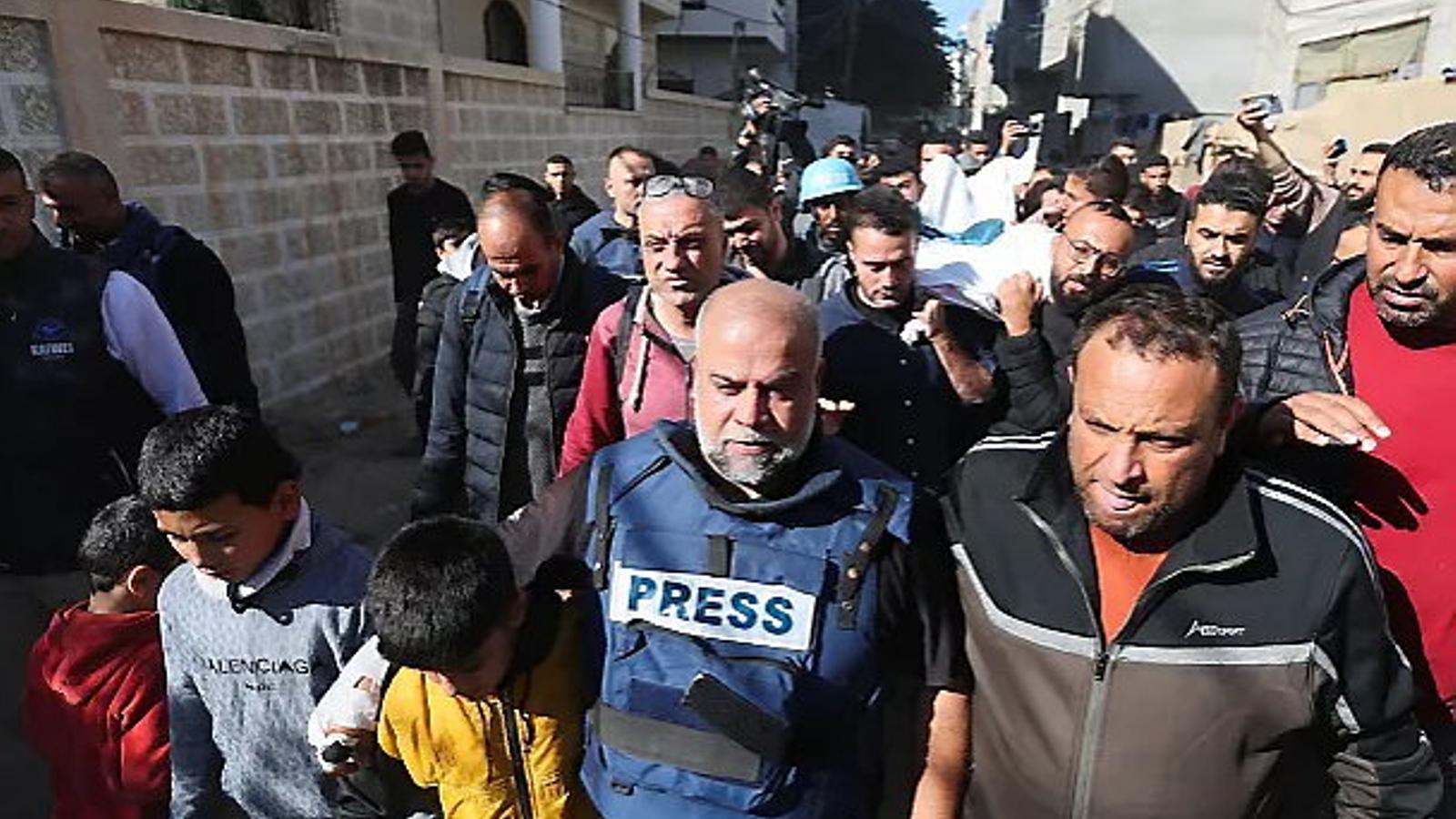ARA joins the global campaign against the killing of journalists in Gaza
One hundred and fifty media outlets from 50 countries are participating in the protest by Reporters Without Borders (RSF) and the citizen movement Avaaz.


LondonReporters Without Borders (RSF) and the citizen movement Avaaz have launched a global mobilization for this Monday with the aim of denouncing the deaths of journalists in the Gaza Strip and demand unrestricted access for the international press to the Palestinian territory. RSF reports that more than 150 media outlets from around fifty countries have joined the initiative. The daily ARA, which has been reporting on the conflict since day one and has already published editorials on several occasions about the State of Israel's actions that threaten the lives of journalists and freedom of information, has also joined.
The call coincided with a new tragic episode: on August 25, one Double attack on the Nasser hospital complex, in Khan Yunis, killed five journalists working there. The victims were Hossam el-Masri (Reuters photojournalist); Mohammed Salama (Al Jazeera photojournalist); Mariam Abu Daqa (documentary filmmaker and journalist for various media outlets, including The Independent Arabic and Associated Press); Moaz Abu Taha (NBC) and Ahmad Abu Aziz, who was a regular contributor to the digital media Middle East EyeThe murder of these five professionals took place only two weeks after Six professionals also fell under Israeli fire more, four of them from the Al Jazeera network.
RSF denounces that, since the beginning of the conflict, the number of journalists killed in Gaza has reached unprecedented levels, and speaks of "close to 250" Palestinian professionals killed in a period of almost two years. "We have crossed the Rubicon. We want to convey a clear message from journalists: that we are tired of seeing our colleagues executed, working in the most dangerous, most difficult place, with a lack of humanity such as we have not seen anywhere in many years," Al of the EFE Agency and professor of journalism at the Complutense University of Madrid tells ARA in a telephone conversation.
Other professional observatories, such as the Committee to Protect Journalists (CPJ), offer other figures (speaks of 197 and 90 imprisoned), a fact that reflects the difficulty of conducting an accurate count when access is limited and fact-checking is complicated. Despite the variation in estimates, both figures highlight the extraordinary human cost of upholding the banner of information.
Legal Actions
To end the impunity that RSF claims allows these attacks, the organization combines media pressure with legal means. So far, it has filed several complaints with the Prosecutor of the International Criminal Court (ICC) and is demanding that journalist victims be able to participate as recognized victims. in ongoing proceedings; also requested emergency meetings with bodies such as the UN Security Council to promote impartial investigations.
The call for action on September 1 proposes simple but visible actions for newsrooms: publish front pages or banners with a black background, include banners in digital versions, broadcast black screens on television, broadcast radio clips with minutes of silence, and post on social media with the hashtag #LetReportersIntoGaza. RSF also proposes rallies in newsrooms. In Spain, other professional organizations have called for minutes of silence at noon in coordination with RSF. Among the international media outlets that have announced their support are Al Jazeera, The Independent or the Israeli-Palestinian environment +972 Magazine.
Beyond the symbolism, the call by RSF and Avaaz reflects what should be a fundamental concern of democratic societies: the disappearance of journalists active in the field is equivalent to an information blackout that impoverishes public understanding of conflicts and makes it difficult to hold those responsible.
At this point, and despite the impunity enjoyed by Israeli Prime Minister Benjamin Netanyahu, who is subject to an arrest warrant from the ICC, Alfonso Bauluz believes that "what we cannot do is give up." He adds: "I worked in the Philippines, I have seen journalists murdered in the Philippines, and now I see a man who dedicated himself to exterminating humble people in that country who is in a prison in The Hague." The president of RSF Spain refers to Former President Rodrigo Duterte, who was arrested last March and that he had an arrest warrant from the ICC for repeatedly violating human rights with extrajudicial executions committed during his "war on drugs."
In addition to a show of solidarity, this Monday's event is, by extension, a "defense of the regime of public opinion, in which any citizen can express themselves freely, and in which the media and journalists play an important role in democratic alternation. But authoritarians and those who dictate... we give up," Bauluz emphasizes.
